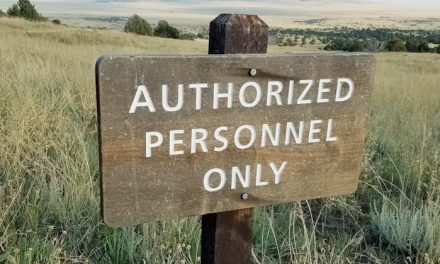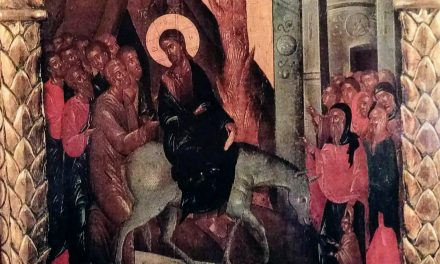All the readings for the Solemnity of the Most Holy Body and Blood of Christ may be found here on the USCCB website.
This post was written by David Cloutier and originally published on October 3rd, 2018. It has been edited slightly for context.
Consider this: There is a helpful distinction between reformers and revolutionaries, between programs of reform and programs of revolution. One might think there is merely a different in degree, but in reality it is a difference in kind. People can and do call for really large reforms. The difference is that revolution seeks not merely to amend the existing order, but to overthrow it and replace it with a new one. Revolution seeks an “age to come” that is at least significantly discontinuous with what’s going on in the present. You knock out the foundation, pull out the very roots.
This distinction is a tricky one for Christians in what the Bible calls “the world.” In one sense, Jesus really is a revolutionary. The proclamation of God’s Kingdom is a radical threat to all sorts of “worldly” authority. That threat is shown throughout the Gospels, as people leave their homes, their jobs, their possessions, and their former ways of life. They repent – turn around – and follow this new thing. And this new thing is clearly a threat to those deeply invested in the existing order. Most notably, the judgment on the Temple, and on the vile and fragile collaborations with Roman authorities that kept it going, was a great threat to a certain existing order. Jesus’s scandalous forgiveness of sins was revolutionary not because there was no way to receive mercy prior to Jesus – the Hebrew scriptures are full of God’s mercy – but because he was offering it apart from the Temple. This should not somehow be dichotomize into another space or interiorized. One of the earliest New Testament passages we have – the hymn to Christ in Philipians chapter 2 – insists that “at the name of Jesus every knee should bend, of those in heaven and on earth and under the earth, and every tongue confess that Jesus Christ is Lord.” This was not the world that St. Paul and the little Christian communities to whom he wrote lived in. It was something very different.
However, in another important sense, Jesus is not a revolutionary. He’s a reformer. He’s importantly a reformer when it comes to observing the Law. His quarrels with the Pharisees – who themselves were reformers, and not so much “establishment” types like the elders and the chief priests – were about the way the Pharisees construed fidelity to God’s Law. They did not understand what the prophets had already said were the most important parts of the law: mercy, charity, and the like. They preferred to emphasize details of ritual and purity, but when it came to a wounded neighbor by the side of the road, they wanted to pass by. And when it came to a problematic wife, they wanted to know when they could be rid of her.
Jesus, here as in many other places, calls out the charade of their fidelity. They do not really want to follow what God wants – what might be called “the spirit of the law” or “the heart of the law.” Their external piety is put together, but their hearts are still hard. And so what does Jesus do? Proclaim the end of the Law? No, he recalls them to the point of the Law: God’s will for lifelong faithful bodily union. He essentially challenges them here: “Trying to find loopholes in Moses’ Law so that you can get a divorce, are you? Well, what you’re really doing in looking for a way to commit adultery.” (Aside: does this apply to all divorces today? No. Even St. Paul engages in thoughtful and prudent application of this saying of Jesus. We need to do so as well. But, after insisting on such tender accompaniment, Pope Francis is clear that “in no way must the Church desist from proposing the full ideal of marriage, God’s plan in all its grandeur” [Amoris Laetitia, #307])
So here as elsewhere, Jesus is in fact a zealous reformer, not a revolutionary. This is because he is Jewish, and any Jesus that only goes revolutionary is bound to end up as an anti-Jewish Jesus, as someone who repudiates the tradition in which Jesus lives and to which God is faithful. And in fact he appeals to “the beginning” – the creation story – to make his point. That’s a reforming move. Revolutionaries always want to overthrow the beginning. Reformers want to get back to it. This week’s first reading, from Genesis 2, tells that story of God’s original creation of man and woman, equal and made for communion. It’s an important – and often overlooked – thing to notice that Jesus’s “revolutionary” aspects – his resistance to violence, for example, and his ethnic inclusivity – reflect a rejection not of God’s created order, but the human fallenness of that order – of things that we think are “just the way the world is,” but in fact could be different. As to the order of sin and violence and conflict, Jesus seeks to continue God’s work… of overthrowing it. Israel’s entire story is a story “against the nations” insofar as these nations worship idols – including things like military power and material wealth. God wants to topple the idols. Overthrow them. And they aren’t simply some kind of superstition. They involve real world “things” too in which people put their trust. Israel’s story says, trust in the Lord and stopping trusting in those other things.
So too Christians ought to be real revolutionaries when faced with tales of sexualized violence, betrayal, abandonment, and power. They ought to want to overthrow a sexual order that would entirely be based on personal empowerment, mastery, and conquest. These things represent a fall from our humanity, a use of sex – and most importantly a violation visited for countless generation especially on women – that must be utterly rejected.
But at the end of the day, this rejection of the idolatries of sexualized power is fundamentally a reform, not a revolution. The story seen this week in Genesis 2 is not a story after the fall, like virtually everything else in the Bible, but before it. Both creation stories tell us of the remarkable beauty of God’s created order, the total goodness of it. And both tell us of this order being crowned by the equal communion of persons made in the image of God. That genuine, real communion is what humans are made for. Perhaps it is impossible for any social order to enforce such a lofty vision – just as we do not expect social orders to mimic exactly and by law the pristine peace and lack of property depicted in those creation stories. But certainly no social order should try to overthrow it.




